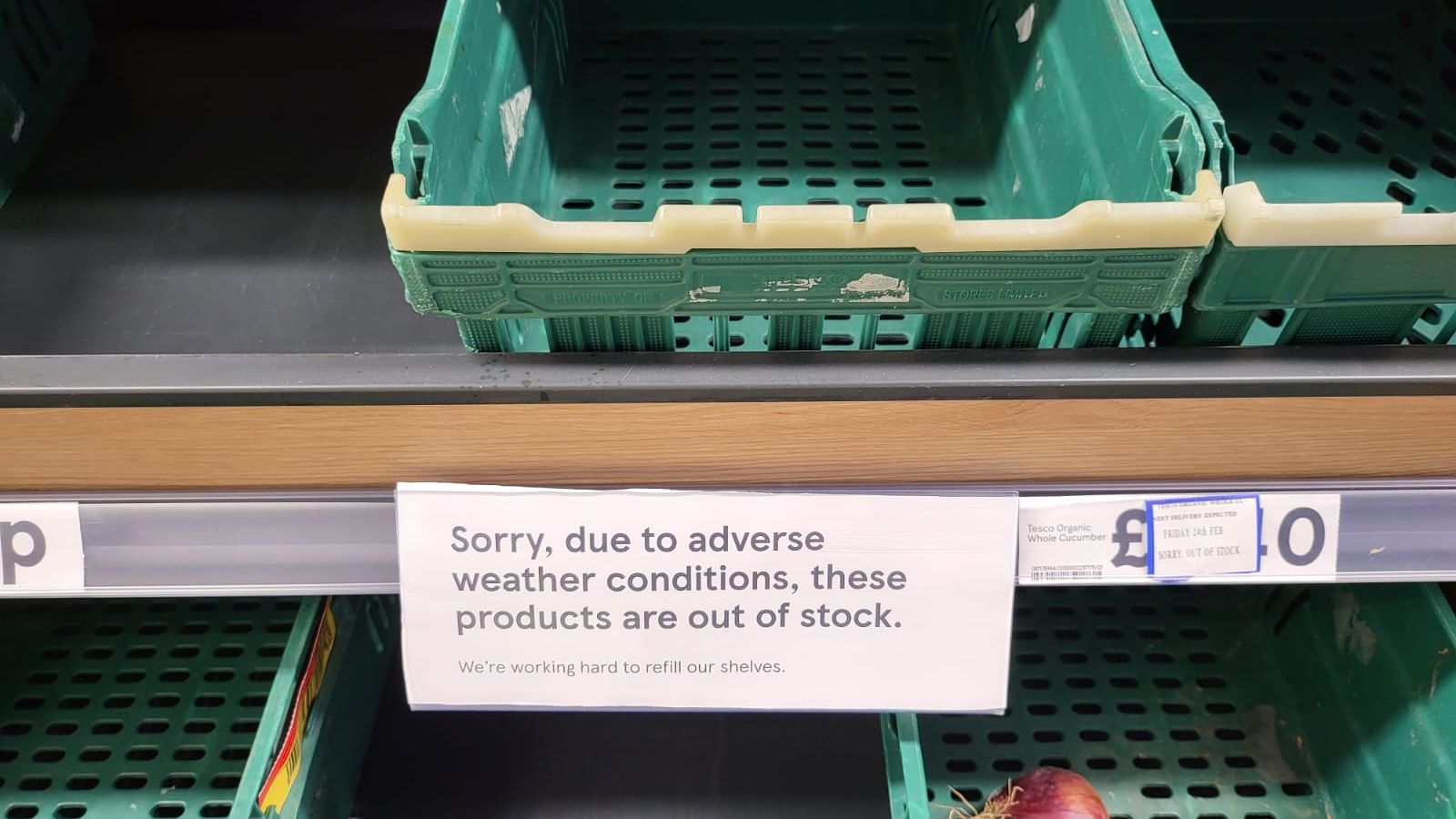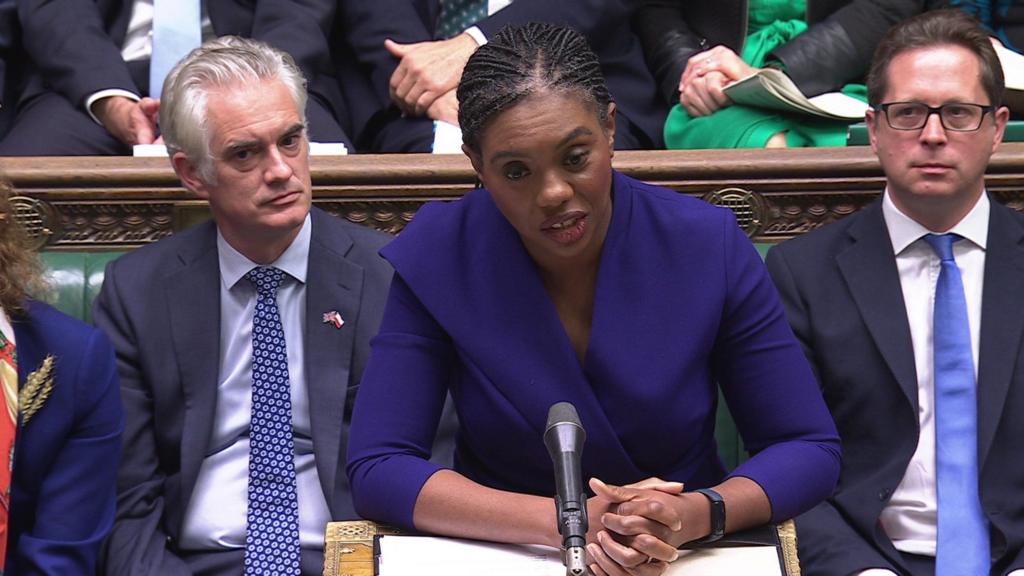Food shortages could last a month, says minister, insisting system 'remains resilient'
Asked if consumers eating more seasonal produce (like root vegetables) would help avoid shortages, Therese Coffey said: "A lot of people would be eating turnips right now rather than thinking about aspects of lettuce, tomatoes and similar... but consumers want a year-round choice".

The food system "remains resilient", the environment secretary has insisted, as she conceded fruit and vegetable shortages will likely continue for another two to four weeks.
Responding to an urgent question in the House of Commons as the crisis leaves some supermarket shelves bare, Therese Coffey said: "I am led to believe by my officials after discussion with industry and retailers, we anticipate the situation will last about another two to four weeks."
Ms Coffey replied: "A lot of people would be eating turnips right now rather than thinking necessarily about aspects of lettuce, and tomatoes and similar.
"But I'm conscious that consumers want a year-round choice and that is what our supermarkets, food producers and growers around the world try to satisfy."
Four supermarket chains this week imposed a limit on the number of certain fruit and vegetables each shopper could buy, shortly before the National Farmers Union had told Sky News of a risk of rationing.
Ms Coffey blamed the shortages on "very unusual weather" in places like Morocco and Spain, from where Britain sources much fresh produce during its dark winter months.
"We do recognise this particular issue right now - that's why the department is already in discussion with retailers," she said.
"To have snow and the amount of heat that was there and the amount of other adverse weather is pretty unusual."
"If the government don't understand that food security is national security... frankly there is no hope for the nation," he said.
"UK food security does remain resilient," Ms Coffey stressed, adding "we will continue to invest in our farmers for generations to come".
Even if the government "cannot control the weather, it is important that we try and make sure the supply continues to not be frustrated in quite the way it has been due to these unusual weather incidents," she added.
Earlier this week the UK's largest tomato grower, APS Produce, which also imports tomatoes in winter to meet demand, told Sky News the shortage of British tomatoes would last until the end of April.
That's because high energy bills deterred growers from planting tomatoes in lit, heated glasshouses in winter, delaying the usual March harvest.
Phil Pearson, group development director at APS Produce, said a "perfect storm" of energy costs hitting UK growers, bad weather in Spain and North Africa and the pandemic had impacted harvests.
"All those things combined... [means] there aren't any tomatoes. No matter what you want to pay," he said. "And that's a real challenge".
Some British farmers are also still recovering from last year's drought, which was driven by climate change.
The British Tomato Growers Association (BTGA) said consumers expect to see "significant volumes" of British tomatoes on supermarket shelves by the end of March and early April.
The show investigates how global warming is changing our landscape and highlights solutions to the crisis.
-sky news






